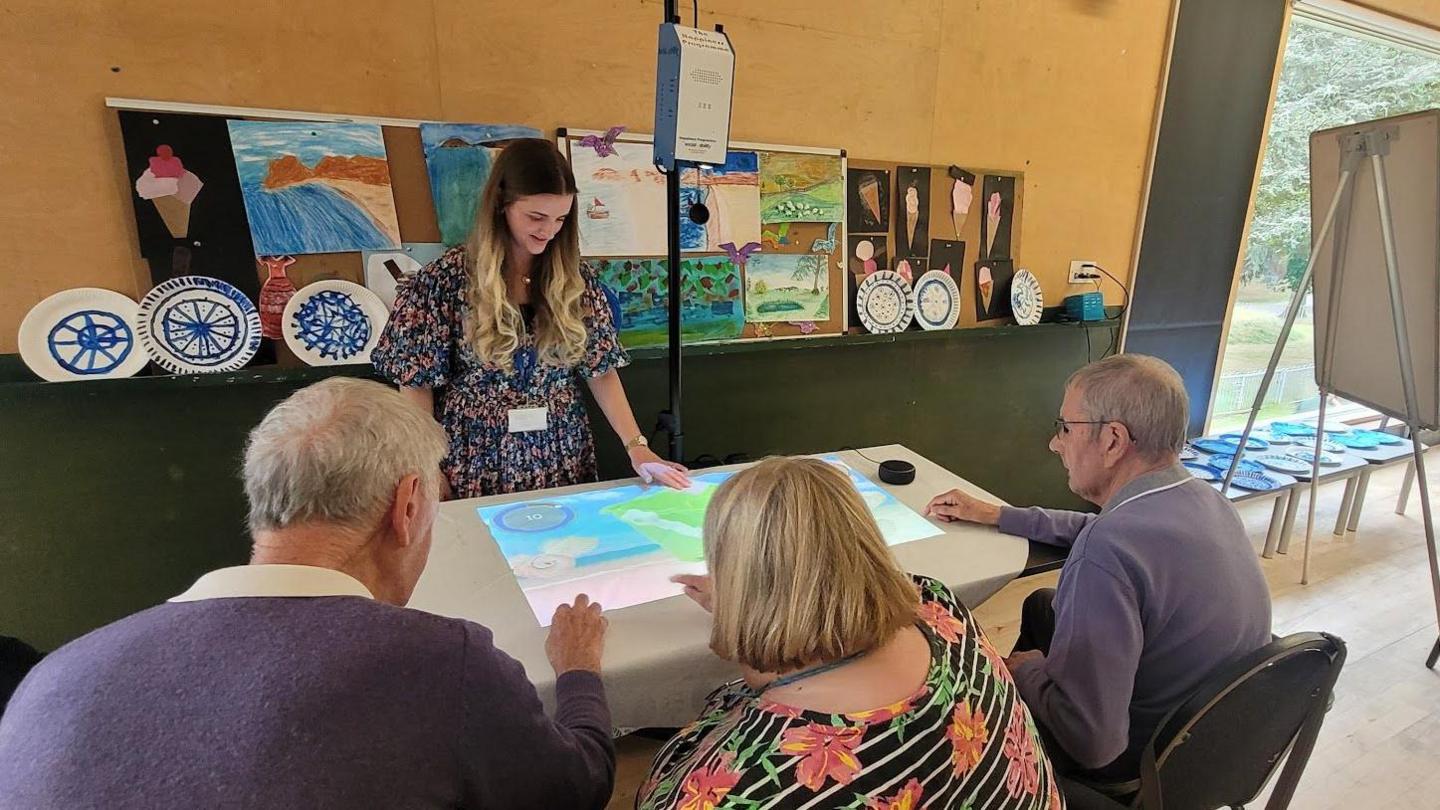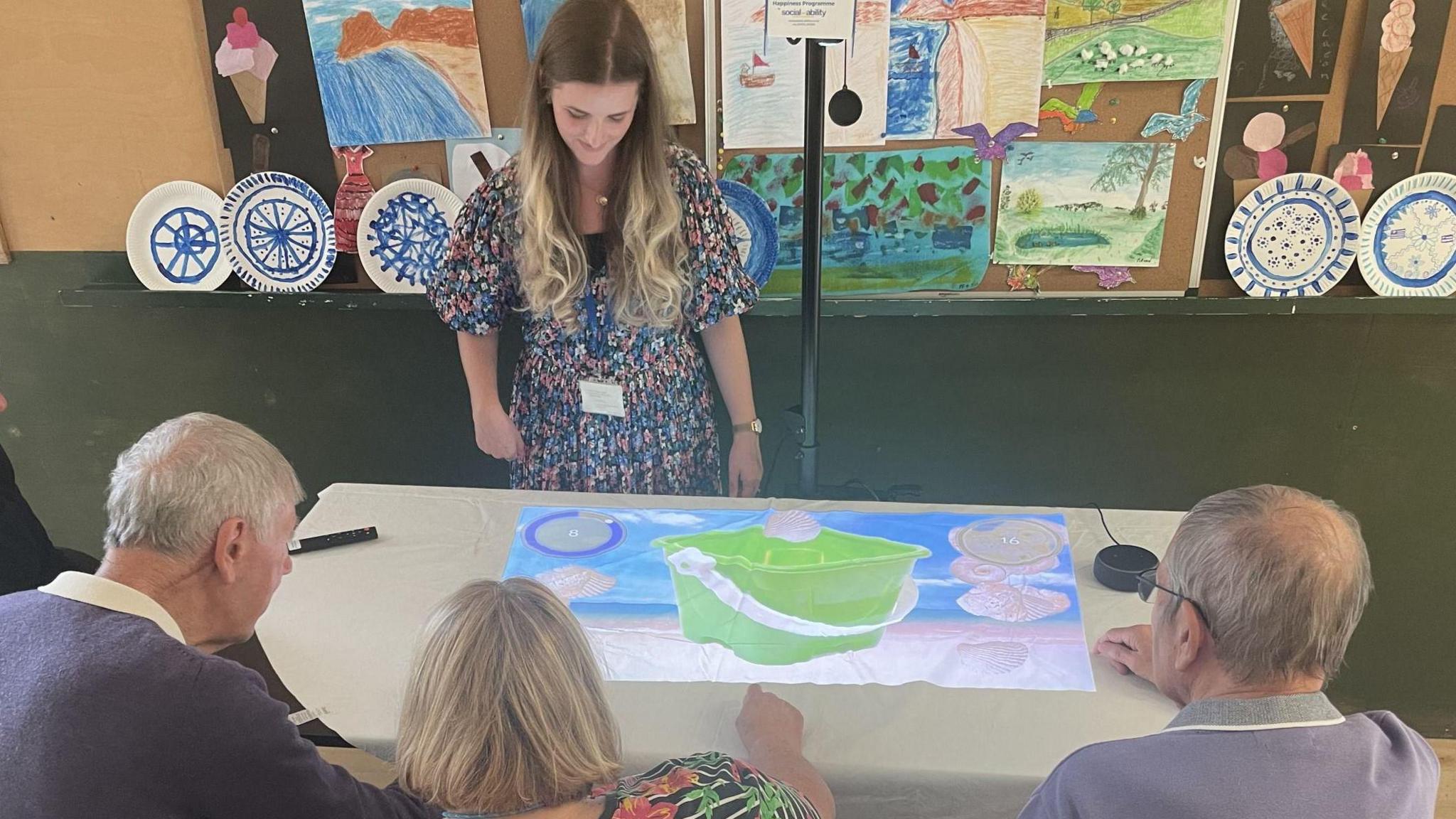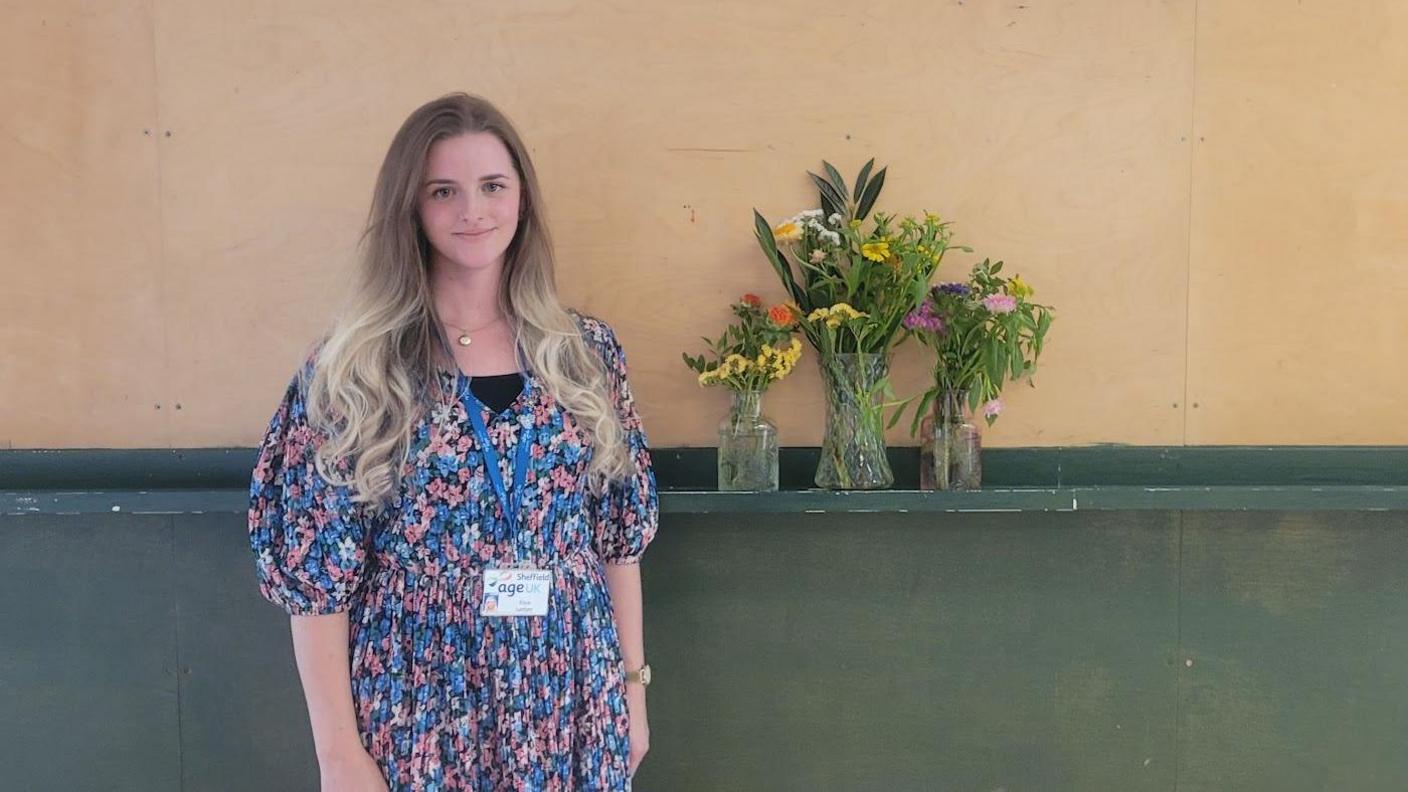Projector brings games and joy to dementia patients

Age UK Sheffield said it has seen service users' social interaction improve
- Published
A form of interactive light therapy for dementia patients has helped them to keep enjoying "the joys of life".
Age UK uses the Happiness Programme at sessions in Sheffield to run games that improve mobility and engagement.
The charity takes a projector into day centres and care homes and the "gentle virtual reality" technology can recreate experiences such as train travel.
A spokesperson for Age UK Sheffield told the BBC: "One of the most magical aspects of it is how it allows non-verbal dementia customers to communicate."

The Happiness Programme helps those with cognitive impairments experience the 'joys of life'
The programme includes 150 activities, such as motor racing, table tennis and quizzes. Participants can also watch a sunset or stargaze.
The Happiness Programme was created by Social-Ability, whose managing director John Ramsay said: "The projector can even be projected onto people's bodies or bedsheets so there's a huge sensory side to it."
Mr Ramsay was 12 years old when his father was diagnosed with dementia in his early 50s, and he said launching the programme in 2020 had personal meaning for him.
"We want it to spark laughter and happiness and help do the things we take for granted."
Mr Ramsay also said it could be more suitable for dementia patients than wearing a virtual reality headset.
"The Happiness Programme brings the virtual experience to the natural world - and some people with dementia also may not also want to wear something on their face and find it confusing when coming back to the 'real' world."
The Hillsborough Wellbeing Centre hosts dementia day services for Age UK Sheffield and the charity's senior community projects lead, Elsie Ledger, said the programme "really enhanced" the sessions.
She said: "For instance this week is Greek week, so instead of travelling to Greece, we have used the sunrise projection, a hot air balloon ride and a flag quiz - which has allowed us to bring Greece into the centre.
"I have seen it bring happiness, even to the staff, there is a lot of joy to be had and something we can just have there for everyone.
"Customers flock to it to have a go and seeing how it responds to their touch is really special."
Ms Ledger also said another major benefit of of the Happiness Programme was how safe it is.
"There is very little risk assessment involved too so customers can enjoy games they cannot do normally, like swimming and table tennis, in a really safe setting.
"People with dementia cannot do everything they used to but that doesn't mean they should stop experiencing all the joys of life."

Elsie Ledger, the charity's senior community projects lead, said using the tool really 'enhances' sessions for those living with dementia
Social-Ability sales director Andrew Spears said the company had seen up to 98% positive feedback from users who said that the Happiness Programme had improved physical, social and cognitive engagement.
"Our team has built an anti-failure feature into the games too - so if you're not right, the answer just fades away rather being told you're wrong; that's really important.
"Rather than just deliver a piece of technology and walk away, we wanted to keep working with our partnerships to create a list of activities we can keep adding to."
The Happiness Programme could also be used for people with other cognitive challenges such as autism.
Mr Spears added: "I have seen family members in tears because they have not had a conversation with a loved one in months but then start communicating by hitting a beach ball to each other.
"Our simple mission was to reach the most isolated people in society."
Listen to highlights from South Yorkshire on BBC Sounds, catch up with the latest episode of Look North or tell us a story you think we should be covering here, external.
Related topics
- Published9 August 2024
